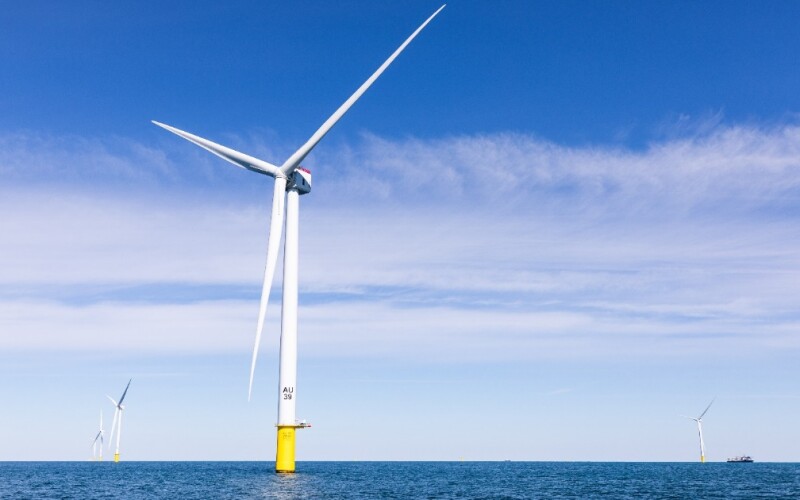Commercial fishing industry advocates appealed to the U.S. Supreme Court to hear their challenge of federal permits that authorized the ongoing Vineyard Wind 1 project off southern New England.
The first approved commercial-scale wind energy project in federal waters, the Vineyard Wind federal “approval sets the precedent for all future U.S. offshore wind development,” said the Responsible Offshore Development Alliance, a coalition of fishing groups and communities.
The case was brought March 5 on behalf of fishermen by attorneys Nancie G. Marzulla and Roger J. Marzulla of RODA's Washington D.C. law firm Marzulla Law.
It asks the high court to reverse a federal appeals court decision that upheld federal permits for the 804-megawatt Vineyard Wind project.
RODA organized in spring 2018 with scallop fishermen and other East Coast operators as its first members, a time when the first Trump administration was still backing offshore wind development. As the Biden administration pushed forward on speeding project approvals, RODA still worked with federal agencies to bring attention to fishermen’s concerns.
Now with the second Trump administration utterly rejecting most renewable energy planning from previous years, RODA is asking the court to require that wind power projects not interfere with fishing.
The group filed a petition for a “writ of certiorari,” asking for the Supreme Court to consider its contention that the U.S. Interior Department “reinterpreted statutory language of the Outer Continental Shelf Lands Act (OCSLA) to approve Vineyard Wind 1.”
The 1953 law provided for federal jurisdiction over the sea floor beyond three miles offshore, and provided for leasing those “submerged lands” for industry use – then for the growing offshore oil and gas industry in the 1950s, and now inclusive of offshore wind energy.
RODA says the law “requires that the Secretary of the Interior ‘shall ensure’ that any approved activities – including offshore wind projects – are consistent with Congress’s requirement to ensure ‘prevention of interference with reasonable uses,’ such as the ‘use of the sea, or a seabed for a fishery.’”
But in 2021, “the Interior Department effectively reinterpreted the statute to authorize Vineyard Wind 1, claiming the ‘shall ensure’ language merely requires these factors be ‘considered’ or ‘balanced’ against the need for offshore wind,” according to RODA.
The appeal echoes longstanding complaints from commercial fishermen – going back to offshore wind planning during the Obama and first Trump administrations – that the Interior Department’s Bureau of Ocean Energy Management was not doing enough to foresee and prevent conflicts between the seafood and offshore wind industries.
“Offshore wind will forever change our oceans, and have lasting effects to US commerce, navigational safety, search and rescue operations, commercial, charter, and recreational fishing, and public enjoyment of our waters,” says RODA. Adding that a Supreme Court appeal “is the only option left to ensure American seafood harvesters, and the U.S. wild-caught sustainable seafood industry are not put out of business at the hands of those who want to turn our oceans into a massive web of industrial power plants.”




